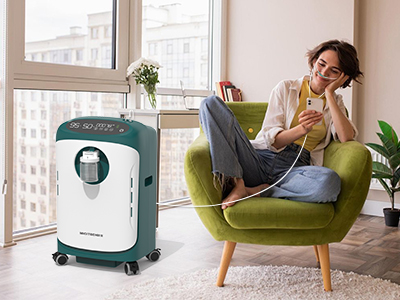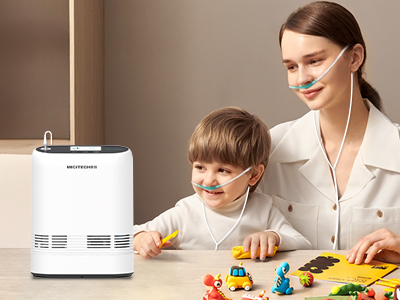02 Sep 2024
Oxygen air compressors are vital machines in both medical and industrial settings, where reliability and longevity are paramount. Extending the lifespan of these compressors not only ensures consistent oxygen delivery but also optimizes operational costs, making it essential to adopt a proactive approach to maintenance and care.

Regular Maintenance and Inspection
Routine maintenance is the cornerstone of a long-lasting oxygen air compressor. Scheduling regular inspections allows you to catch potential issues before they escalate into costly repairs or replacements. Key areas that require attention include the compressor’s valves, hoses, and electrical components. Preventive maintenance, such as tightening loose connections and replacing worn parts, can greatly enhance the machine’s operational lifespan, ensuring it functions at peak efficiency.
Proper Lubrication
Lubrication plays a critical role in maintaining the health of an oxygen air compressor. It reduces friction between moving parts, minimizing wear and tear. The type of lubricant used is crucial; selecting one that is compatible with your specific compressor model is essential. Over time, inadequate lubrication can lead to increased friction, overheating, and ultimately, compressor failure. Regularly check lubricant levels and quality, and address any deficiencies promptly to keep the compressor running smoothly.

Optimal Operating Environment
The environment in which your oxygen air compressor operates can have a profound effect on its performance and longevity. Ideally, compressors should be used in areas with controlled temperature and humidity levels. High humidity can lead to moisture accumulation inside the compressor, causing rust and other forms of corrosion. Similarly, extreme temperatures can strain the compressor’s components, leading to premature failure. Maintaining a stable, clean, and dry environment is one of the simplest yet most effective ways to extend your compressor’s life.
Filter Care and Replacement
Filters are an integral part of the oxygen air compressor system, as they remove impurities from the air before it is compressed. Over time, these filters can become clogged with dust and debris, which restricts airflow and forces the compressor to work harder than necessary. Regularly checking and replacing filters ensures that the compressor operates efficiently and reduces the risk of damage to internal components. Clean filters not only improve the quality of the oxygen produced but also enhance the overall performance of the compressor.
Monitoring Compressor Performance
Tracking the performance of your oxygen air compressor is crucial for identifying potential issues early. Using tools such as pressure gauges and temperature monitors, you can keep an eye on critical performance metrics. A sudden drop in pressure or a rise in operating temperature could indicate underlying problems that need to be addressed. By monitoring these parameters consistently, you can intervene before minor issues develop into major failures, thereby extending the life of your compressor.
Training and Education
Proper training for all personnel who interact with the oxygen air compressor is essential. Educating staff on the correct operating procedures, maintenance tasks, and troubleshooting techniques ensures that the compressor is used appropriately and maintained correctly. Additionally, staying informed about the latest best practices and technological advancements can further enhance the care you provide to your equipment. Well-trained operators contribute to the longevity and reliability of the compressor.
Avoiding Overuse and Overloading
Overworking an oxygen air compressor can lead to excessive wear and shorten its lifespan. Compressors are designed to handle specific workloads, and pushing them beyond their limits can result in overheating and mechanical failure. To prevent this, manage the workload carefully, ensuring that the compressor is not running continuously at maximum capacity. Allowing the equipment to rest periodically can help dissipate heat and reduce the strain on its components, ultimately prolonging its service life.
Upgrading and Replacing Parts
Even with the best care, certain components of an oxygen air compressor will eventually wear out. Knowing when to upgrade or replace these parts is crucial for maintaining optimal performance. Using high-quality replacement parts can make a significant difference in the compressor’s durability and efficiency. In some cases, it may be more cost-effective to replace the entire compressor, especially if it has reached the end of its expected lifespan. Making these decisions in a timely manner helps avoid unexpected downtime and costly repairs.
Conclusion
Maintaining an oxygen air compressor requires diligence, but the rewards are well worth the effort. By following these tips—ranging from regular maintenance and proper lubrication to training and part replacement—you can significantly extend the life of your compressor. This not only ensures reliable oxygen delivery but also maximizes the return on your investment. In the end, a well-cared-for compressor is a more efficient, cost-effective, and dependable asset to any operation.
Keywords: air compressor
Originally published 02 Sep 2024, updated 02 Sep 2024.